10 Subtle Signs of Bipolar Disorder
Here are 10 signs that mood problems may be due to more than a quirky or difficult personality.

Bipolar symptoms
by Tammy Worth
When it comes to mental
illness, there are plenty of stereotypes. But in reality, mood disorders
can be hard to pinpoint—particularly in people with bipolar disorder
symptoms.
"Chalking it up to moodiness or trouble at work or tiredness is pretty common," says Carrie Bearden, PhD, an associate professor in residence of psychiatry and behavioral sciences and psychology at the David Geffen School of Medical at UCLA. "The disorder varies in severity."
Here are 10 signs that mood problems may be due to more than a quirky or difficult personality.
"Chalking it up to moodiness or trouble at work or tiredness is pretty common," says Carrie Bearden, PhD, an associate professor in residence of psychiatry and behavioral sciences and psychology at the David Geffen School of Medical at UCLA. "The disorder varies in severity."
Here are 10 signs that mood problems may be due to more than a quirky or difficult personality.
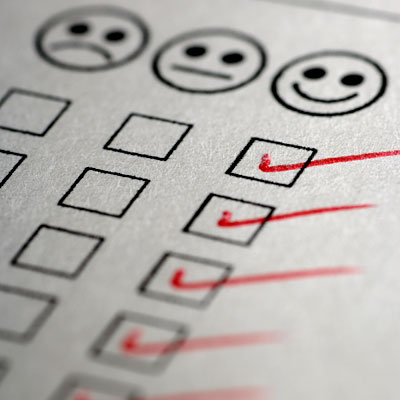
Great mood
Bipolar disorder is
characterized by up-and-down episodes of mania and depression. During a
manic phase, some patients can have a total break from reality.
But hypomania, which is also a symptom of the disorder, is a high-energy state in which a person feels exuberant but hasn’t lost his or her grip on reality.
"Hypomania can be a pretty enjoyable state, really," Dr. Bearden says. A person’s mood can be elevated, they may have a lot of energy and creativity, and they may experience euphoria. This is the "up" side of bipolar disorder that some people with the condition actually enjoy—while it lasts.
But hypomania, which is also a symptom of the disorder, is a high-energy state in which a person feels exuberant but hasn’t lost his or her grip on reality.
"Hypomania can be a pretty enjoyable state, really," Dr. Bearden says. A person’s mood can be elevated, they may have a lot of energy and creativity, and they may experience euphoria. This is the "up" side of bipolar disorder that some people with the condition actually enjoy—while it lasts.
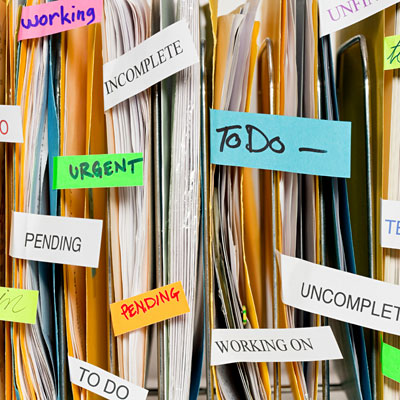
Inability to complete tasks
Having a house full of
half-completed projects is a hallmark of bipolar disorder. People who
can harness their energy when they are in a hypomanic phase can be
really productive.
Those who can’t often go from task to task, planning grand, unrealistic projects that are never finished before moving on to something else.
"They can be quite distractible and may start a million things and never finish them," says Don Malone, MD, the director of the Center for Behavioral Health and chair of the Department of Psychiatry at Cleveland Clinic, in Ohio.
Those who can’t often go from task to task, planning grand, unrealistic projects that are never finished before moving on to something else.
"They can be quite distractible and may start a million things and never finish them," says Don Malone, MD, the director of the Center for Behavioral Health and chair of the Department of Psychiatry at Cleveland Clinic, in Ohio.

Depression
A person who is in a bipolar
depressive state is going to look just like someone who has regular
depression. "They have the same problems with energy, appetite, sleep,
and focus as others who have 'plain old depression,'" Dr. Malone says.
Unfortunately, typical antidepressants alone don't work well in patients who are bipolar. They can even make people cycle more frequently, worsening their condition, or send someone into a break-with-reality episode.
"Antidepressants can be downright dangerous in people with bipolar because they can send them into mania," he says.
Unfortunately, typical antidepressants alone don't work well in patients who are bipolar. They can even make people cycle more frequently, worsening their condition, or send someone into a break-with-reality episode.
"Antidepressants can be downright dangerous in people with bipolar because they can send them into mania," he says.

Irritability
Some people with this condition suffer from "mixed mania," where they experience symptoms of mania and depression at the same time. During this state, they are often extremely irritable.Everyone has bad days, which is one reason this kind of bipolarity is much harder to recognize.
"We are all irritable or moody sometimes," Dr. Bearden says. "But in people with bipolar disorder it often becomes so severe that it interferes with their relationships—especially if the person is saying, 'I don’t know why I’m so irritable…I can’t control it.

Rapid speech
Some people are naturally
talkative; we all know a motormouth or Chatty Cathy. But "pressured
speech" is one of the most common symptoms of bipolar disorder.
This kind of speech occurs when someone is really not in a two-way conversation, Dr. Bearden says. The person will talk rapidly and if you try to speak, they will likely just talk over you.
They will also sometimes jump around to different topics. "What’s kind of a red flag is when it is atypical for the person to talk like this," doing it only when they are in a manic cycle but not at other times, she says.
This kind of speech occurs when someone is really not in a two-way conversation, Dr. Bearden says. The person will talk rapidly and if you try to speak, they will likely just talk over you.
They will also sometimes jump around to different topics. "What’s kind of a red flag is when it is atypical for the person to talk like this," doing it only when they are in a manic cycle but not at other times, she says.
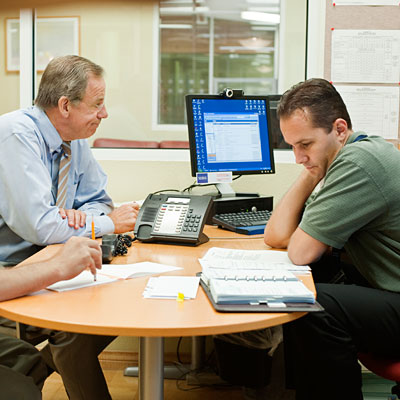
Trouble at work
People with this disorder often
have difficulty in the workplace because so many of their symptoms can
interfere with their ability to show up for work, do their job, and
interact productively with others.
In addition to having problems completing tasks, they may have difficulty sleeping, irritability, and an inflated ego during a manic phase, and depression at other times, which causes excessive sleeping and additional mood problems.
A lot of the workplace problems can be interpersonal ones, Dr. Malone says.
In addition to having problems completing tasks, they may have difficulty sleeping, irritability, and an inflated ego during a manic phase, and depression at other times, which causes excessive sleeping and additional mood problems.
A lot of the workplace problems can be interpersonal ones, Dr. Malone says.

Alcohol or drug abuse
About 50% of people with bipolar disorder also have a substance abuse problem, particularly alcohol use, Dr. Bearden says.
Many people will drink when they are in a manic phase to slow themselves down, and use alcohol to improve their mood when they are depressed.
Many people will drink when they are in a manic phase to slow themselves down, and use alcohol to improve their mood when they are depressed.
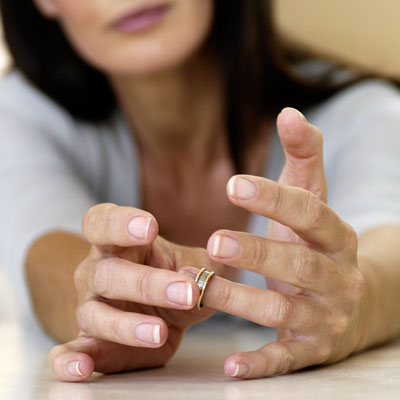
Erratic behavior
When they are in a manic phase, people with bipolar disorder can have an inflated self-esteem.
"They feel grandiose and don't consider consequences; everything sounds good to them," Dr. Malone says.
Two of the most common types of behavior that can result from this are spending sprees and unusual sexual behavior. "I have had a number of patients who have had affairs who never would have done that if they weren't in a manic episode…during this episode they exhibited behavior that is not consistent with what they would do normally," he says.
"They feel grandiose and don't consider consequences; everything sounds good to them," Dr. Malone says.
Two of the most common types of behavior that can result from this are spending sprees and unusual sexual behavior. "I have had a number of patients who have had affairs who never would have done that if they weren't in a manic episode…during this episode they exhibited behavior that is not consistent with what they would do normally," he says.
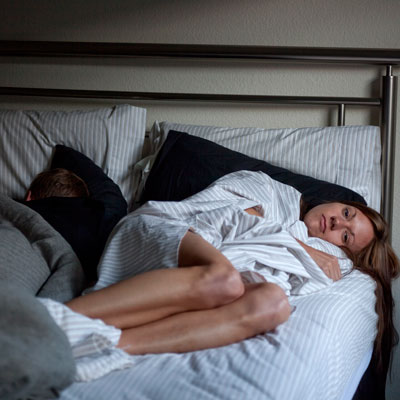
Sleep problems
People with this condition
often have sleep problems. During a depression phase, they may sleep too
much, and feel tired all the time.
During a manic phase, they may not sleep enough—but still never feel tired.
Even with just a few hours of sleep each night, they may feel great and have lots of energy.
Dr. Bearden says staying on a regular sleep schedule is one of the first things she recommends for bipolar patients.
During a manic phase, they may not sleep enough—but still never feel tired.
Even with just a few hours of sleep each night, they may feel great and have lots of energy.
Dr. Bearden says staying on a regular sleep schedule is one of the first things she recommends for bipolar patients.

Flight of ideas
This symptom may be something
that is hard to recognize, but it occurs frequently when someone is in a
manic phase. People feel like their mind is racing and that they can't
control or slow down their thoughts.
This flight of ideas sometimes occurs with pressured speech.
People with bipolar may not recognize or admit that their mind is racing out of control, says Dr. Bearden.
This flight of ideas sometimes occurs with pressured speech.
People with bipolar may not recognize or admit that their mind is racing out of control, says Dr. Bearden.

Bipolar disorder, sometimes
called manic depression, affects nearly 6 million American adults, or
about 2.5% of the adult population. Most people with this disorder swing
from depression to manic states.
Understanding mania in bipolar disorder
Bipolar disorder,
sometimes called manic depression, affects nearly 6 million American
adults, or about 2.5% of the adult population. Most people with this
disorder swing from depression to manic states.

Mania symptom: increased energy and mental activity
And who wouldn't like to
experience this effect? One of the reasons some people with bipolar
disorder don't like the mood-flattening medication is that they miss
this perk, which almost always ends with a corresponding depression.

Mania symptom: exaggerated self-confidence
We're not saying this guy has
mania, but some people with bipolar disorder do experience a heightened
mood and super self-confidence during their "highs."
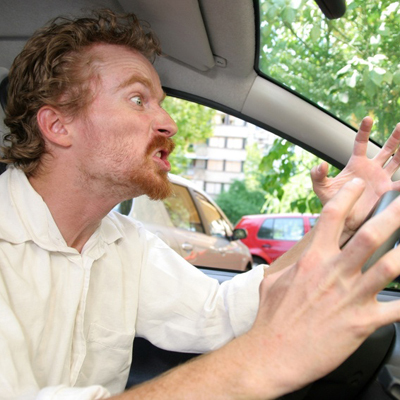
Mania symptom: aggressive behavior
Road rage can happen to anyone.
However, sufferers of bipolar disorder will almost certainly experience
excessive irritability or aggressive behavior during manic phases.
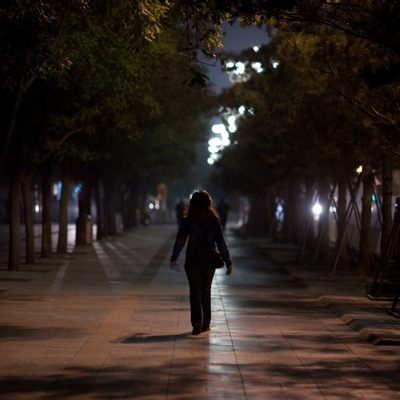
Mania symptom: sleeplessness
We're not talking garden
variety insomnia here. People with bipolar disorder sometimes experience
a decreased need for sleep without fatigue during their manic phases,
and feel much more productive.

Mania symptom: grandiosity
It's fine to have high
self-esteem, but during a manic phase people with bipolar disorder
sometimes experience grandiose thoughts and an inflated sense of
self-importance.
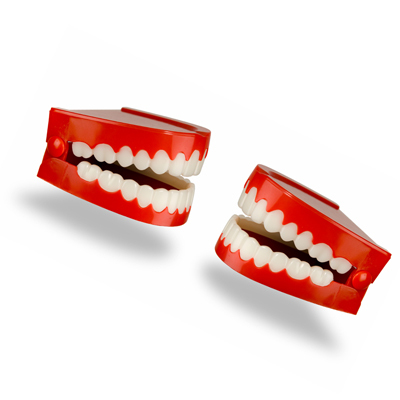
Mania symptom: racing speech and thoughts
You know how some people talk
and think so fast you can hardly follow what they are saying? During a
manic phase, people with bipolar disorder sometimes experience racing
speech, racing thoughts, and a flight of ideas.
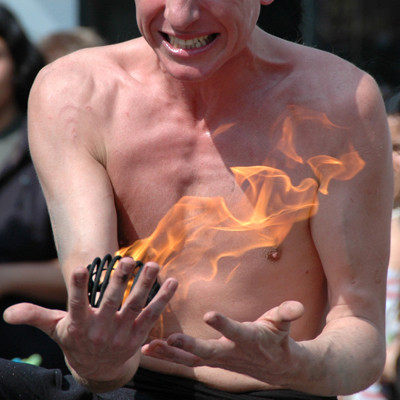
Mania symptom: dangerous behavior
Experts who deal with people
with bipolar disorder tell incredible tales of risk-taking during the
manic phase, from inappropriate sexual behavior to stealing cars.
Impulsiveness, poor judgment, and distractibility are all hallmarks of
mania.

Mania symptom: displaying reckless behavior
We're not implying here that
this streaker is bipolar, but people with bipolar disorder can display
reckless behavior during a manic phase. They lack the internal censor
that tells healthy people how to curb their actions.
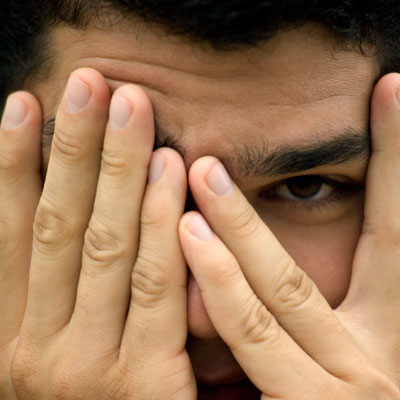
Mania symptom: hallucinations
In the most severe cases, people with bipolar disorder can experience delusions and hallucinations.
Source: Depression and Bipolar Support Alliance
Source: Depression and Bipolar Support Alliance
Depression in Bipolar Disorder

Depression symptom 1: extreme sadness
When sad spells come on for no
reason and don't let up, it can be a sign of depression. People with
bipolar disorder sometimes experience prolonged sadness or unexplained
crying spells.
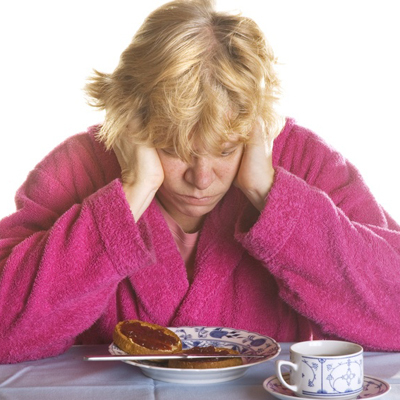
Depression symptom 2: changes in appetite
If you are not interested in
foods you normally love or you are binge eating for emotional reasons,
it can be a sign of depression. People with bipolar disorder sometimes
experience significant changes in appetite and sleep patterns.
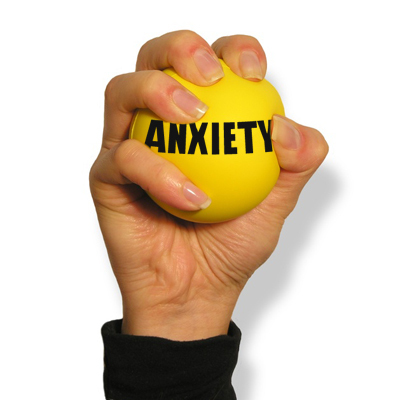
Depression symptom 3: anxiety
Worried for no reason? People with bipolar disorder sometimes experience irritability, anger, worry, agitation, and anxiety.

Depression symptom 4: indifference
People with bipolar disorder sometimes experience pessimism and indifference.
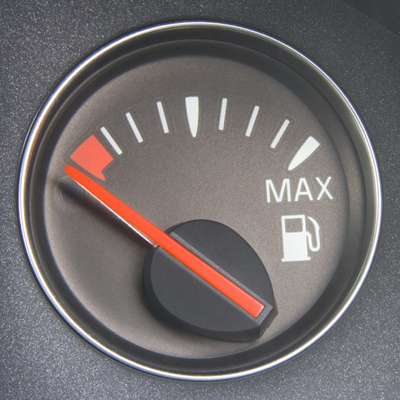
Depression symptom 5: low energy
Do you ever feel like you are
running on empty, especially after a manic phase during which you felt
as if you couldn't be stopped? People with bipolar disorder sometimes
experience loss of energy.
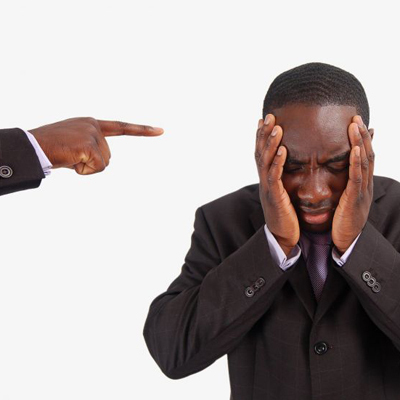
Depression symptom 6: feeling worthless
People with bipolar disorder sometimes experience feelings of guilt and worthlessness.
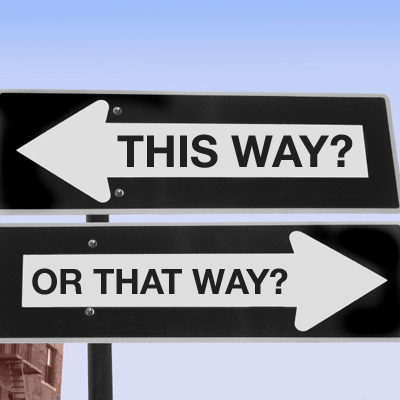
Depression symptom 7: indecisiveness
Ever feel like you can't make up your mind? People with bipolar disorder sometimes feel hobbled by indecision.
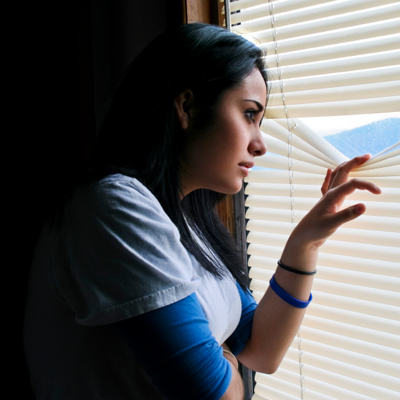
Depression symptom 8: feeling disinterested
People with bipolar disorder sometimes experience inability to take pleasure in former interests.
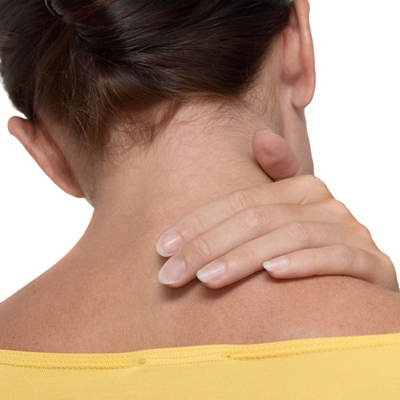
Depression symptom 9: unexplained aches and pains
People with bipolar disorder sometimes experience unexplained aches and pains.
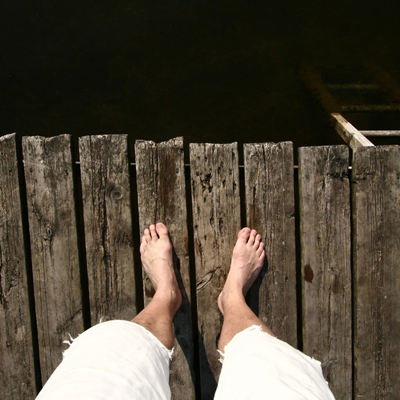
Depression symptom 10: feeling suicidal
People with bipolar disorder
are more likely to commit suicide than the general population, and are
more likely to consider killing themselves when depressed versus when
they are in a manic phase.
Definition
By Mayo Clinic staffBipolar disorder — sometimes called manic-depressive disorder — is associated with mood swings that range from the lows of depression to the highs of mania. When you become depressed, you may feel sad or hopeless and lose interest or pleasure in most activities. When your mood shifts in the other direction, you may feel euphoric and full of energy. Mood shifts may occur only a few times a year, or as often as several times a day. In some cases, bipolar disorder causes symptoms of depression and mania at the same time.
Although bipolar disorder is a disruptive, long-term condition, you can keep your moods in check by following a treatment plan. In most cases, bipolar disorder can be controlled with medications and psychological counseling (psychotherapy).
Symptoms
By Mayo Clinic staff Bipolar disorder is divided into several subtypes. Each has a different pattern of symptoms. Types of bipolar disorder include:- Bipolar I disorder. Mood swings with bipolar I cause significant difficulty in your job, school or relationships. Manic episodes can be severe and dangerous.
- Bipolar II disorder. Bipolar II is less severe than bipolar I. You may have an elevated mood, irritability and some changes in your functioning, but generally you can carry on with your normal daily routine. Instead of full-blown mania, you have hypomania — a less severe form of mania. In bipolar II, periods of depression typically last longer than periods of hypomania.
- Cyclothymic disorder. Cyclothymic disorder, also known as cyclothymia, is a mild form of bipolar disorder. With cyclothymia, hypomania and depression can be disruptive, but the highs and lows are not as severe as they are with other types of bipolar disorder.
 Bipolar disorder symptoms reflect a range of moods.
Bipolar disorder symptoms reflect a range of moods.
Manic phase of bipolar disorder
Signs and symptoms of the manic or hypomanic phase of bipolar disorder can include:
- Euphoria
- Inflated self-esteem
- Poor judgment
- Rapid speech
- Racing thoughts
- Aggressive behavior
- Agitation or irritation
- Increased physical activity
- Risky behavior
- Spending sprees or unwise financial choices
- Increased drive to perform or achieve goals
- Increased sex drive
- Decreased need for sleep
- Easily distracted
- Careless or dangerous use of drugs or alcohol
- Frequent absences from work or school
- Delusions or a break from reality (psychosis)
- Poor performance at work or school
Signs and symptoms of the depressive phase of bipolar disorder can include:
- Sadness
- Hopelessness
- Suicidal thoughts or behavior
- Anxiety
- Guilt
- Sleep problems
- Low appetite or increased appetite
- Fatigue
- Loss of interest in activities once considered enjoyable
- Problems concentrating
- Irritability
- Chronic pain without a known cause
- Frequent absences from work or school
- Poor performance at work or school
Signs and symptoms of bipolar disorder can also include:
- Seasonal changes in mood. As with seasonal affective disorder (SAD), some people with bipolar disorder have moods that change with the seasons. Some people become manic or hypomanic in the spring or summer and then become depressed in the fall or winter. For other people, this cycle is reversed — they become depressed in the spring or summer and manic or hypomanic in the fall or winter.
- Rapid cycling bipolar disorder. Some people with bipolar disorder have rapid mood shifts. This is defined as having four or more mood swings within a single year. However, in some people mood shifts occur much more quickly, sometimes within just hours.
- Psychosis. Severe episodes of either mania or depression may result in psychosis, a detachment from reality. Symptoms of psychosis may include false but strongly held beliefs (delusions) and hearing or seeing things that aren't there (hallucinations).
Instead of clear-cut depression and mania or hypomania, the most prominent signs of bipolar disorder in children and adolescents can include explosive temper, rapid mood shifts, reckless behavior and aggression. In some cases, these shifts occur within hours or less — for example, a child may have intense periods of giddiness and silliness,
long bouts of crying and outbursts of explosive anger all in one day.
When to see a doctor
If you have any symptoms of depression or mania, see your doctor or mental health provider. Bipolar disorder doesn't get better on its own. Getting treatment from a mental health provider with experience in bipolar disorder can help you get your symptoms under control.
Many people with bipolar disorder don't get the treatment they need. Despite the mood extremes, people with bipolar disorder often don't recognize how much their emotional instability disrupts their lives and the lives of their loved ones. And if you're like some people with bipolar disorder, you may enjoy the feelings of euphoria and cycles of being more productive. However, this euphoria is always followed by an emotional crash that can leave you depressed, worn out — and perhaps in financial, legal or relationship trouble.
If you're reluctant to seek treatment, confide in a friend or loved one, a health care professional, a faith leader or someone else you trust. They may be able to help you take the first steps to successful treatment.
If you have suicidal thoughts
Suicidal thoughts and behavior are common among people with bipolar disorder. If you or someone you know is having suicidal thoughts, get help right away. Here are some steps you can take:
- Contact a family member or friend.
- Seek help from your doctor, a mental health provider or other health care professional.
- Call a suicide hot line number — in the United States, you can reach the toll-free, 24-hour hot line of the National Suicide Prevention Lifeline at 800-273-8255 to talk to a trained counselor.
- Contact a minister, spiritual leader or someone in your faith community.
If you think you may hurt yourself or attempt suicide, call 911 or your local emergency number immediately. If you have a loved one who has harmed himself or herself, or is seriously considering doing so, make sure someone stays with that person. Take him or her to the hospital or call for emergency help.
Causes
By Mayo Clinic staff The exact cause of bipolar disorder is unknown, but several factors seem to be involved in causing and triggering bipolar episodes:- Biological differences. People with bipolar disorder appear to have physical changes in their brains. The significance of these changes is still uncertain but may eventually help pinpoint causes.
- Neurotransmitters. An imbalance in naturally occurring brain chemicals called neurotransmitters seems to play a significant role in bipolar disorder and other mood disorders.
- Hormones. Imbalanced hormones may be involved in causing or triggering bipolar disorder.
- Inherited traits. Bipolar disorder is more common in people who have a blood relative (such as a sibling or parent) with the condition. Researchers are trying to find genes that may be involved in causing bipolar disorder.
- Environment. Stress, abuse, significant loss or other traumatic experiences may play a role in bipolar disorder.
